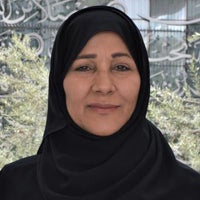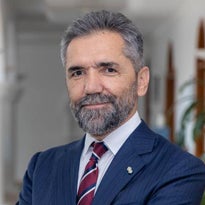The Significance of Dalā’il al-Nubuwwah in Contemporary Times
Conference Overview
The conference will be held in English and Arabic with live interpretation for both languages.
Addressing a topic of critical importance to Muslims in the 21st century, the Muhammad Bin Hamad Al Thani Center for Muslim Contribution to Civilization (CMCC) is pleased to announce Dalā'il al-Nubuwwah (proofs of prophethood) as the focus of this year's Sīrah conference.
Historically, religion has functioned as a protective shield for human society, maintaining its cohesion, contributing to creative interaction among its members, and providing a successful behavioral system through a divine mandate.
However, the modern era has witnessed a rise in intellectual and behavioral tendencies that defy religious cultures in favor of absolute freedom. The shift has resulted in adverse effects such as alienation and repression.
Muslim scholars have long recognized the importance of the aspect of Dalā'il (proofs) in the Sīrah (biography) of the Prophet (PBUH) and paid great attention to it. So much has been written on this topic that it has become a separate and specialized genre known as Dalā'il al-Nubuwwah (Proofs of Prophethood), dedicating entire works to exploring these proofs and their impact on strengthening faith and responding to doubts in this regard.
This timely conference will explore the historical and contemporary significance of Dalā'il al-Nubuwwah, how they serve as evidence for Prophethood, and what some contemporary issues weighing in upon this genre of Sīrah studies are.
Chair’s Message
The Muhammad Bin Hamad Al Thani Center for Muslim Contribution to Civilization (CMCC) is engaged with the translation of classical works of the Islamic academic tradition that have contributed to the welfare of human civilization throughout Muslim history.
These efforts stem from the center's conviction that Muslims were able to make such achievements by following in the footsteps of our noble Prophet Muhammad (Peace Be Upon Him). This conviction has led the center to hold the second consecutive conference on Sīrah along with a theme that deeply relates to the study of a significant aspect of the Sīrah of the Prophet (Peace Be Upon Him).
For this, the center has invited prominent scholars of the Islamic theological and philosophical traditions in the hope that new horizons of knowledge shall open before us.
Dean’s Message
I would like to congratulate the CMCC for holding its second conference on the Sīrah of our noble Prophet Muhammad (Peace Be Upon Him).
This year's theme, Dalā’il al-Nubuwwah (Proofs of Prophethood), is an exploration of the very foundations of faith, an affirmation of the necessity of divine guidance in an age increasingly characterized by skepticism and epistemological challenges. By examining the proofs of prophethood in our contemporary context, we aim to reinforce the timeless relevance of the Prophet’s message and address the growing intellectual and spiritual crises of our time. Our goal is not only to enrich the study of the Sīrah rather, to provide practical solutions that can strengthen faith and guide Muslims in traversing the complexities of the modern world.
May Allah grant us success in our right endeavors, and may this conference be a source of knowledge, unity, and inspiration for all.
About
About The College of Islamic Studies
HBKU’s College of Islamic Studies (CIS) was founded to become a beacon for contemporary Islamic scholarship and thought, and a platform for meaningful intellectual and cultural dialogue on Islam and Muslims. Through its nine academic offerings and research centers, the college seeks to address some of the most pressing questions facing Muslim communities today, both locally and globally. Through its offerings, the college strives to advance a better understanding of Islam and its social dimensions and to produce graduates who can contribute and excel in a rapidly changing world.
About Hamad Bin Khalifa University
Hamad Bin Khalifa University (HBKU), a member of the Qatar Foundation for Education, Science, and Community Development (QF), was founded in 2010 to continue fulfilling QF's vision of unlocking human potential. HBKU is a homegrown research and graduate studies University that acts as a catalyst for positive transformation in Qatar and the region while having a global impact.
Located within Education City, HBKU seeks to provide unparalleled opportunities where inquiry and discovery are integral to teaching and learning at all levels utilizing a multidisciplinary approach across all focus areas.
HBKU is committed to actively contributing to achieving the Qatar National Vision 2030 by building and cultivating human capacity through an enriching academic experience and an innovative research ecosystem. Through applying creativity to knowledge, students will be able to discover innovative, locally relevant solutions that have a global impact.
At Hamad Bin Khalifa University – our students, faculty, staff, partners, and leadership – all share a common belief in the power of higher education and research to make a positive impact on the development of nations.
More information at www.hbku.edu.qa
About Education City
Our flagship initiative is a campus of more than 12 square kilometers that hosts branch
campuses of some of the world's leading educational institutes, a homegrown university, and
other research, scholastic, and community centers. Together, these institutes make Education
City a unique model of academic and research excellence, pioneering a new approach to
multidisciplinary, global education and enabling breakthroughs that benefit Qatar and the rest
of the world.
More information at https://www.qf.org.qa/education/education-city
About Qatar
Qatar has been an independent sovereign state since 1971. Qatar comprises an 11,500 sq. km
peninsula extending northwards into the Arabian Gulf. It has 563 km of uninterrupted coastline.
The country's population stands at 2.69 million and its capital city is Doha.
Local time is GMT/ UCT + 3 hours. There are no daylight savings adjustments.
Qatar has a desert climate with year-round sunshine, very hot summers, and mild winters. Mean
monthly temperatures range from 17°C in January to 36°C in July, sometimes reaching highs of
45°C+ during the summer. Rain is infrequent, falling in brief showers mainly in winter.
Capital: Doha
Population: 2.68 million
Area: 11,500 sq. km
Language: Arabic
Religion: Islam
Currency: Qatari Riyal
Power Connection: The power plugs and sockets are of type D and G. The standard voltage is 240 V
and the standard frequency is 50 Hz.
Transportation
Karwa is the national taxi and limousine service. To book a taxi call +974 800 8294. You can
pay by cash, bank card, or mobile payment.
Karwa taxis can be ordered or pre-booked via the Karwa Taxi app (available on iOS and Android),
or hailed from the street.
UBER taxi service is also active in Qatar.
You can use your international driving license for seven consecutive days.
Metro
The metro system has three lines (Gold, Green, and Red) covering 37 stations. Trains run every
3 minutes and staff are available at every station to assist you during your journey.
You can buy a travel card at stations and then save time by topping up online or on the Qatar
Rail app (iOS and Android)
All stations have elevators and all train carriages provide space for wheelchair users and
pushchairs, as well as guide dog allowances. You can check the Qatar Rail website before you
travel.
Free Metrolink buses run useful routes within 2 - 5 km of stations.
If you are traveling to central Doha, you can take the metro to one of these stations, which are
conveniently located to access the Corniche area. You can change lines at Al Bidda (Red and
Green) stations and Msheireb (Red, Green and Gold)
More information at https://www.qr.com.qa/home
Currency Exchange (March 2023)
Minor Unit: 1/100 = Dirham
- 1.00 EUR = 3.88 QAR
- 1.00 USD = 3.64 QAR
- 1.00 GBP = 4.40 QAR
More information at https://www.visitqatar.qa
Submission
Conference Objectives
- Draw the attention of scholars and researchers to the significance of this reformative aspect of the Prophetic Sīrah.
- Encourage the production of contemporary academic studies on this topic.
- Discover appropriate means to formulate what the Dalā’il offer in terms of reinforcing faith in the concept of prophethood and its necessity for human beings in all times and places.
- Highlight the faults of contemporary epistemological perspectives through an academic analysis of the epistemological framework inferred from the dalā’il.
- Contribute to bringing the Prophet (Peace Be Upon Him) closer to people’s hearts and minds.
Conference Themes
- Dalā’il al-Nubuwwah in the early and modern periods
- Modern scientific thought in relation to the logic of Dalā’il
- Means to benefit from the Dalā’il literature in the contemporary context
- Dalā’il al-Nubuwwah in encountering contemporary atheism
- Dalā’il literature and the 'other'


